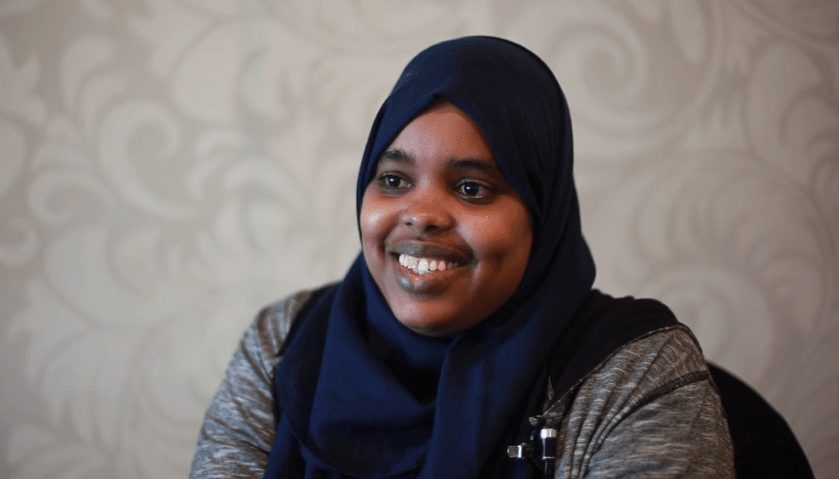
Originally published on Ms. Magazine
As smoke and the initial shock cleared from the apocalyptic scene that follows a mass terror act, two little boys were running around in Somalia’s capital Mogadishu looking for their mother. They were eventually led to her. The boys went home carrying pieces of her burnt remains in a small box; she was killed along with more than 300 people on Saturday. 500 more were injured and almost 150 missing.
The ground-shaking attack at a busy junction destroyed hotels, government offices and restaurants. Sadly ironic, the office of Witness Somalia—an organization aiming to help war-torn Somali society pursue peaceful pathways, free from violence, through empowering women and youth—was completely destroyed by the terror attack.
“My friends and other colleagues who work in human rights were killed,” said Faiza Dhocob, a Gender Officer at Witness Somalia. “I remain utterly shocked and saddened by this cowardly senseless mass killing.”
Witness Somalia, a member organization of the Women Alliance for Security Leadership (WASL) which is spearheaded by the International Civil Society Action Network (ICAN) issued a statement describing the attack:
Truck laden with military grades and variety of homemade explosive devices were used which maximized the impact and the death toll that some of the deceased bodies could not be recognized due to the intense heat generated by the blast that burned down people, a gas station which is located exactly where the truck exploded made the situation more worse. More than five main buildings were completely destroyed into ashes with all people inside those building assumed also to be dead.
But despite their despair, Witness Somalia is helping victims and unifying families with their missing loved ones. They are also calling “for all civil society organizations and community volunteers to extend their unconditional support to the affected families by starting fundraising platforms, distribution medical supplies and providing food as well as clothes to the wounded people,” and they want a memorial wall and billboards installed in Mogadishu in memoriam of those who lost their lives.
No group has yet claimed it was behind the bombing. Somali President Mohamed Abdullahi “Farmajo” Mohamed blamed the attack on Al-Shabab, calling it a “heinous act.” The president, who took power in February, decided to stop all negotiations with Al-Shabab, rendered them unprotected by the law and gave his forces, and anyone who sees them, the order to kill them on spot instead of bringing them to justice. He had previously vowed to rid the country of the group.
Earlier this year, Al Shabab vowed to increase its attacks after both the Trump administration and Somalia president announced new military efforts against the group. Some view the attack as revenge against increased drone strikes by the U.S., most notably a July mission in Barire, a strategically significant town on a major road 45 kilometers (28 miles) from the capital. But even though Al Shabaab has been a source of terror for years, the group distanced itself from this attack.
The militant group has done more than enough damage over the years. Hundreds of boys have been kidnapped for recruitment from their schools and from home, according to Dhocob. “For each family with four boys, Al-Shabab takes two. They threaten clan leaders that if they do not bring those children, they will kill them,” she stated. “So many families are shattered and displaced in the areas under Al-Shabab control.” Extremism is also taking a toll on education. “Many people have stopped sending their children to schools out of fear of what they might face,” she said, adding that Somalia “lost bright students who were doing really well.”
Being a peace activist in Somalia is risky. The militants eye them with suspicion. “People who work in local and international NGOs, or with the government, are always in danger,” Dhocob said. “If Al-Shabab sees us, we are ‘punished,’ and if they catch us, we do not have a chance to survive. They think we are spies to international donors, or not ‘true’ Muslims.” The government is also wary of them; activists also have to be checked by national security every time they travel. Nevertheless, Witness Somalia is involved in protecting and promoting basic principles and values of human rights by advocating for equality and social justice in grassroots communities.
Dhocob’s work revolves around women rights, mainly post-rape action. “We demand justice for women. We push women to raise their voices,” she said. The organization educates women to report on rape cases and provides legal aid. They have won many cases—and were able to convince doctors to hand in court evidence on rape cases, which they had previously avoided doingo. “The doctors now stand for women,” Dhocob highlighted. Witness Somalia set up a lab in one of Mogadishu’s hospitals dedicated to rape cases and check-ups. Notably, it relocates women who survived rape and are at risk of being forcibly disappeared or killed in their hometowns. The organization trains graduates in legal aid and defense and journalists to speak on behalf of women who were raped.
In addition, awareness campaigns also target the government to push for actions—but this work cannot end there. Dhocob explains: “It should not be civil society only helping women. Women are still vulnerable. We want to take every position possible to help them, and inform them of their rights.”
Dhocob and her colleagues, a dedicated group of human right defenders and social workers, have been working since January 2015 on monitoring and documenting human rights violations and abuses that are taking place within the country. The organization calls for remedial action, both at a governmental and grassroots level, and demand those behind such violations to be held accountable.
“Today’s horrific attack proves our enemy would stop nothing to cause our people pain and suffering. Let’s unite against terror,” President Mohamed said on Twitter following the deadly attack. “Time to unite and pray together. Terror won’t win.” Dhocob hopes the same.
